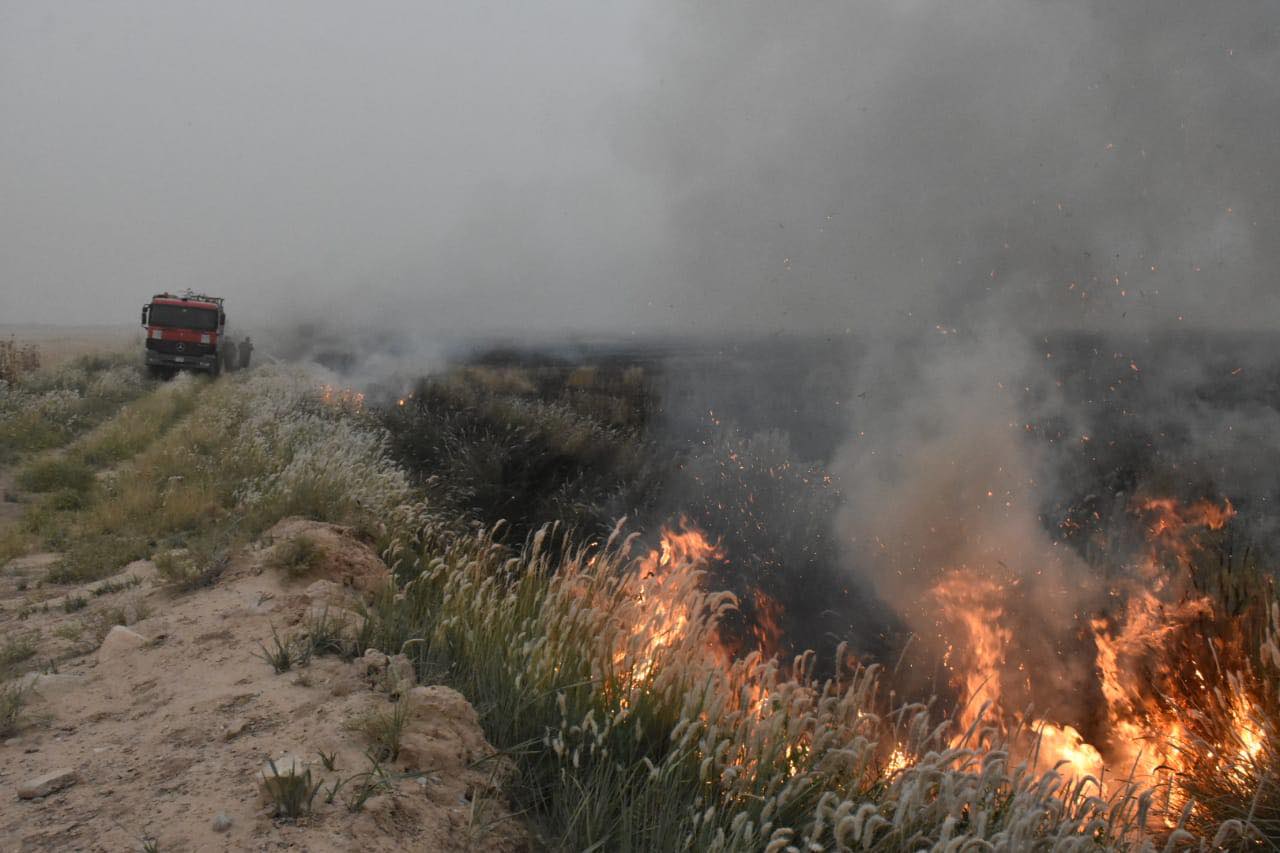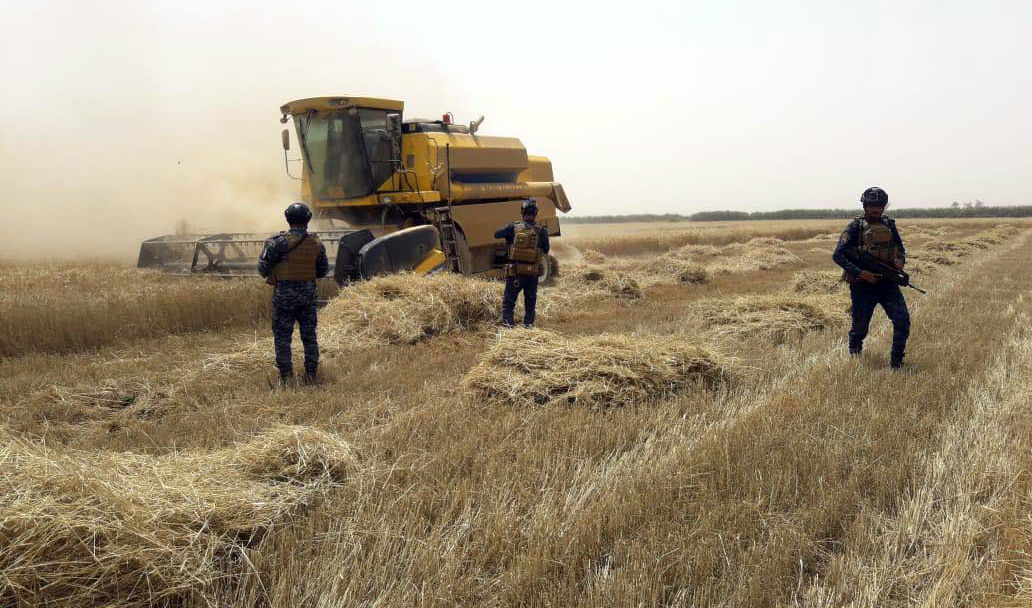The Iraqi Joint Operations Command has deployed additional forces in southern and southwestern Kirkuk due to the latest bloody attacks by the extremist militants of the Islamic State of Iraq and Syria ISIS.
The local administrative officials fear a sectarian reaction as on May 23 attacks, ISIS militants stormed the village of Sami Assi in Albashir, a majority Turkmen town, in Taza subdistrict of southern Kirkuk, killing six Turkmen farmers and burning three vehicles.
They have also set fire to a 30-acres of crop farms which the firefighting brigades later controlled.
"ISIS killed six farmers during the harvest and burned their crops. Similar attacks are not new as Daesh targets not only Turkmen, but also Arabs, Kurds and Turkmen," Louis Fandy Obeidi, mayor of Daquq district south of Kirkuk, told KirkukNow.
In the past few months, several attacks have been carried out on different villages and areas of Kirkuk, including the Kakayi and Kurdish villages of Daquq district, in addition to several other incidents in the Arab-dominant district of Hawija, where the governor of Kirkuk comes from.

Kirkuk, Iraq’s second largest oil reserves, is an ethnically mixed province for 1,7 million Kurds, Arabs, and Turkmens. Located 238 kilometers north of Baghdad, it has long been at the center of disputes between Baghdad and the Erbil.
“In the incident of Sami Aasi village, some people wanted to take advantage of it to accuse the Arabs of being behind the targeting of Turkmen, which is a false accusation and to provoke sectarian conflict,” Fandy said. “You are not right and we will not allow anyone to make baseless and sectarian accusations against the Arabs.”
He also explained that there have been incidents of burning farms of crops in the Arab village of Omar bin Khattab, the Kurdish villages of Zanqri and Yangija.
"This targeting includes Arabs, Kurds and Turkmens.”
The security situation in southern and southwestern Kirkuk is under the control of the Iraqi army, federal and local police, and the pro-Iran paramilitary of Popular Mobilization Forces PMF locally known as al-Hashid al-Shaabi, including Turkmens Hashid, all under the umbrella of Kirkuk’s Joint Operations Command.
The Turkmens believe the latest bloody attack deliberately targeted the Turkmen community which calls for deployment of further toops in the volatile region.
Arshad Salihi, head of the Turkmen bloc in the Iraqi parliament, said the Turkmen Hashid forces, part of PMF, should be supported and further armed.
Turkmens, the third largest ethnic group in Iraq after Arabs and Kurds, are spread across the country, residing almost exclusively in the northern towns and villages stretching from Tal Afar through Mosul, Erbil, Altun Kopri, Kirkuk, Tuz Khurmatu, Kifri and Khanaqin. They are all Muslims, half Sunnis and half Shiites.
Earlier in 2020, the three main communities of Kirkuk, Arabs, Kurds and Turkmens, submitted a request to the Iraqi Council of Ministers to create a mixed brigade to protect the residents of Daquq district and other areas south and southwest of Kirkuk, but to no avail.

Salihi said the incident in Sami Aasi village casts doubt on the ability of the security forces, so work must be done to eliminate security gaps and serious efforts to support the forces, including the Turkmen Hashdi.
A high-level security delegation led by Brigadier General Abdul Amir Shamari, deputy commander of the Iraqi Joint Forces, visited Kirkuk on Wednesday and decided to take new measures, including increasing the number of armed forces and redeploying it in the area.
Lieutenant Tahsin Khafaji, spokesman for the Iraqi Joint Operations Command, told KirkukNow that the delegation to Kirkuk met with security commanders and decided to increase the forces and military checkpoints and redeploy it in a way to eliminate the security gap.
Khafaji stressed that they would respond strongly to the ISIS militants which "will have no chance to escape.”
Sleeper cells and resistant pockets of ISIS militants are regrouping in the rural areas of the disputed territories between Baghdad and Erbil where neither Iraqi security forces of the those of the semi-autonomous Iraqi Kurdistan Region IKR are deployed.
They are posing a high threat by different tactics such as hit-and-run attacks, kidnappings, snipers, IED and roadside bombs targeting the Iraqi forces and civilians.





